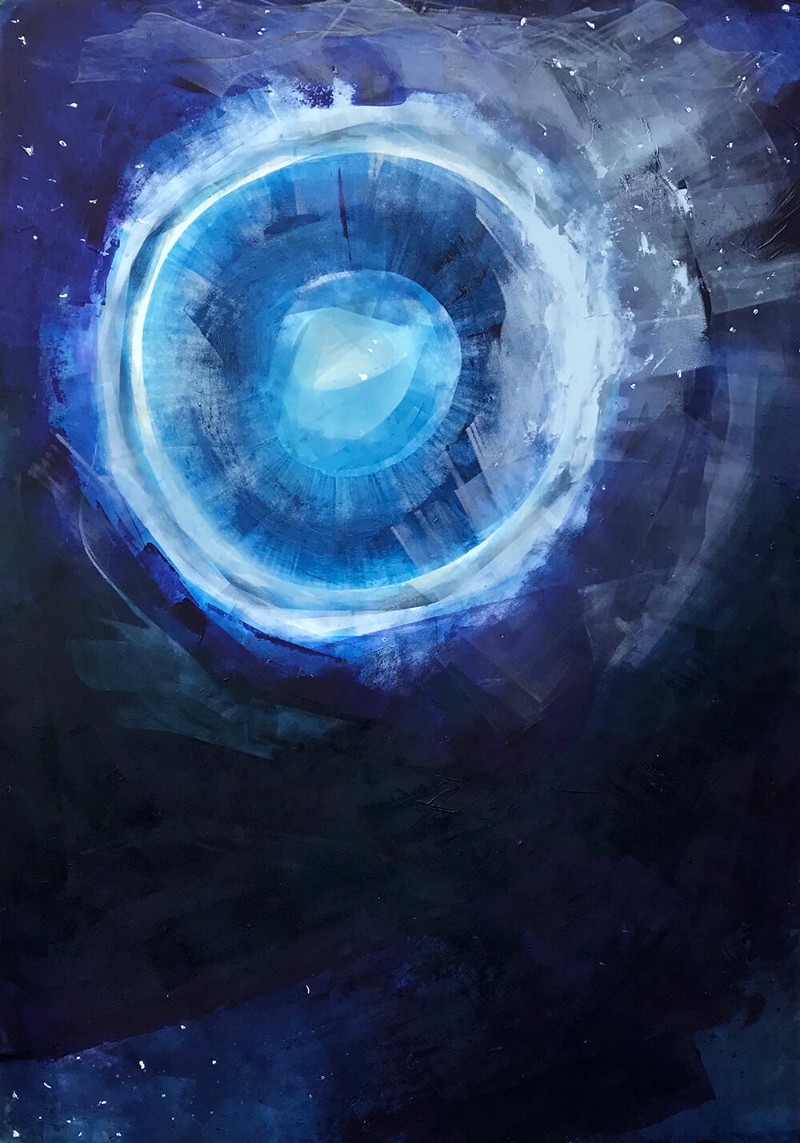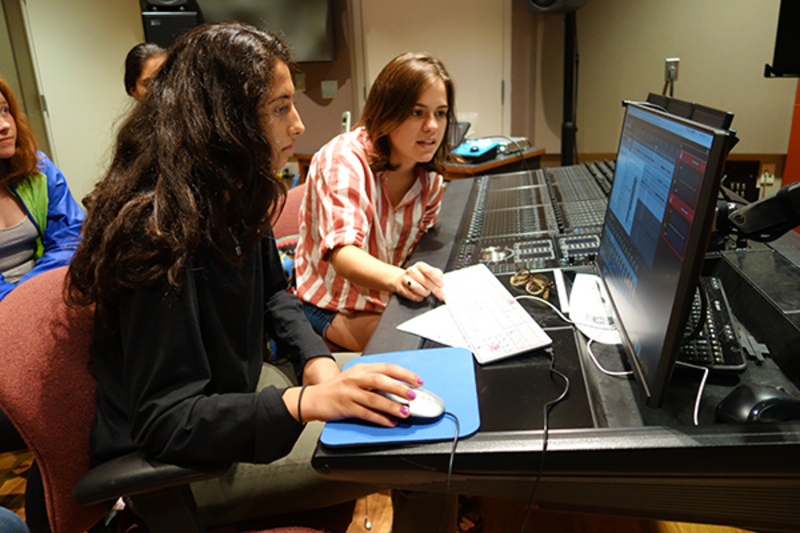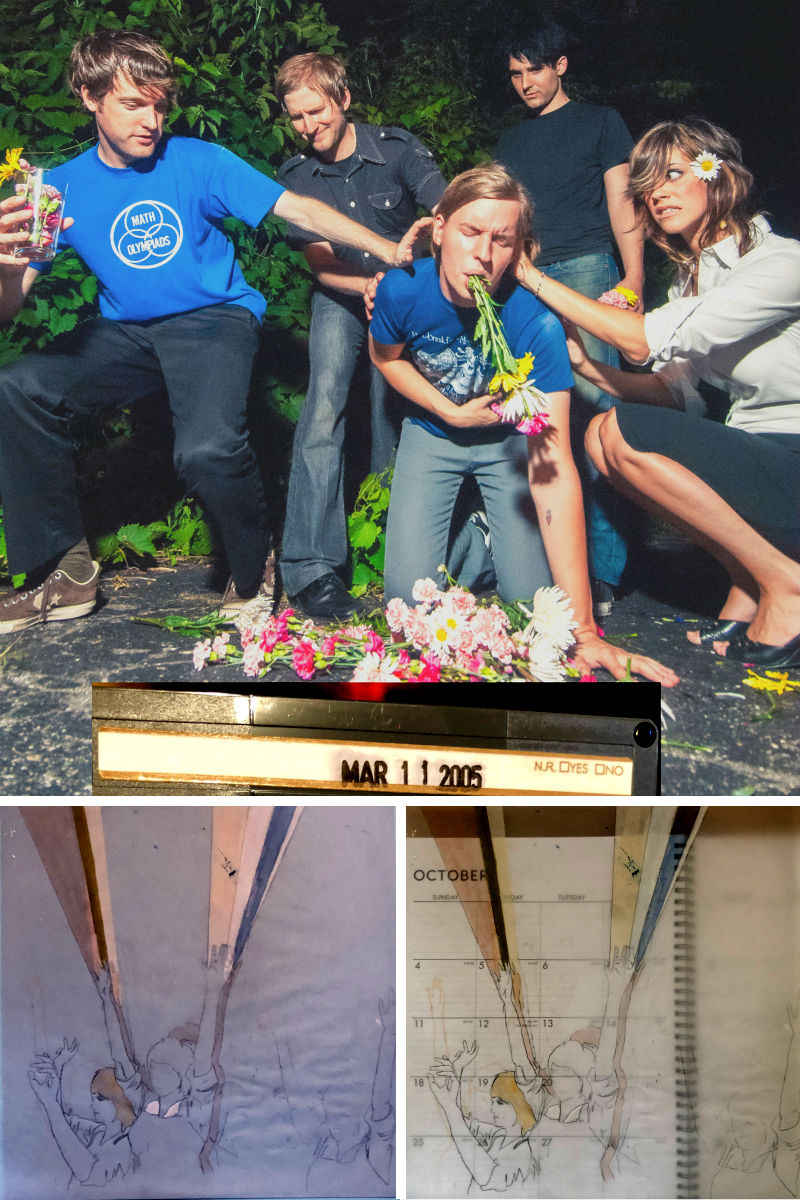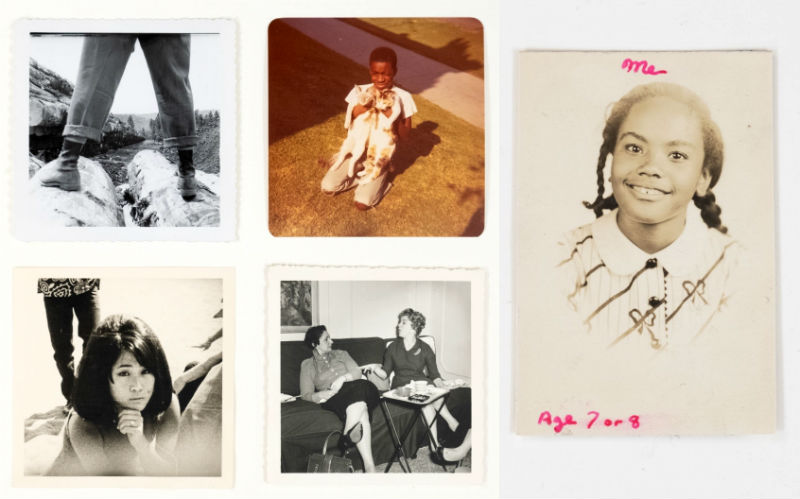Elementalism: Lynda Cole's "Earth and Polar Work" exhibit at WSG Gallery

On Monday, I made my first extended stroll down Main Street since the pandemic shut down Ann Arbor and the world. While taking in the sites, I was noticing which businesses were open (a lot), which ones were closed for good (RIP Prickly Pear Southwest Cafe), which ones were new (Of Rice and Men, an Asian-fusion restaurant in the former Dessous space owned by the Blue LLama Jazz Club folks), and which ones were planned to open (InfusIV Hydration, which offers vitamin-infused IV drip therapy -- which feels aligned both with Ann Arbor's woo-woo hippy past and the city's tech-money-infused present).
But it was seeing WSG Gallery's empty space and partially covered windows that reminded me that I hadn't been keeping up with the art collective's move to online exhibitions. (Here's a June 18 Pulp article about why WSG had to pull up stakes from its prime location for the past 20 years and move entirely online, at least for now.)
WSG's current exhibit is Lynda Cole's Earth and Polar Work, which runs July 7 - August 17.
John Carlos Cantú reviewed Cole's November 2015 exhibit, North, which has a similar feel to the work in Earth and Polar Work:
Michigan proto-punk legends James Williamson and Deniz Tek team up for album of raw power

Forsythe Junior High and Pioneer High School grad Deniz Tek made his name as the leader of Australian proto-punk legends Radio Birdman.
James Williamson made his name as the guitarist for Iggy and The Stooges and was co-writer of every song on Raw Power.
But despite their shared love for search-and-destroy guitar riffs, these two Michigan music giants have never recorded together until Two to One, an 11-track album that comes out September 18.
Tek (67) and Williamson (70) sound like young guns on the album's first single, "Stable."
Jesse Kramer's "Antinous as Osiris" interprets Roman passion and New York jazz through the lens of a Washtenaw County upbringing

This story originally ran June 12, 2019.
For roughly half a decade, the Roman emperor Hadrian was in love with a man who was not his spouse. Between 125 CE and 130 CE, the Greek youth Antinous became a favorite of Hadrian, and for the final two years of the latter's life they were side by side touring the Roman empire.
After Antinous' surprise death on the Nile, Hadrian was devastated and, in his grief, proclaimed his lover a deity, In turn, priests connected Antinous to the Egyptian god Osiris, lord of the underworld, afterworld, and rebirth.
Et voilà:
Nearly 2,000 years later we have Antinous as Osiris, the latest album by Ann Arbor jazz drummer Jesse Kramer.
Open to all 9-12th graders, U-M's Girls in Music & Technology summer camp goes virtual this August

Summer camps, like the rest of society, were put in disarray due to the Covid crisis.
But some summer camps were able to recast their normal activities into virtual ones and stay open.
The University of Michigan's Girls in Music and Technology (GiMaT) runs August 17-28 is one of those camps, and because of its focus, GiMaT will likely be one of the more successful transitions to the virtual world. After all, who better to run a virtual tech and music camp than actual tech experts?
GiMaT is for students in grades 9-12, and the "camp is open to students of all gender identities, and is designed to encourage and support campers who wish to explore musical applications of technology."
U-M Faculty Director Dr. Zeynep Özcan, who makes brilliantly brainy electronic music, will guide students in understanding the musical applications if technology, with help from U-M School of Music, Theatre & Dance Department of Performing Arts Technology faculty. The program overview includes:
Legendary Ann Arbor luthier Herb David passes away

On July 26, David Siglin, the former director of The Ark, announced on his Facebook page the death of legendary Ann Arbor luthier Herb David:
I am very sad to report that Herb David died last night. Herbie was one of a kind, unique in every way. He was a very important influence on me and my love for folk music. I feel strongly that, if not for Herb and Herb David Guitar Studios, The Ark would have come and gone in the late 1960s or early 70s. But more than anything, he was a dear friend and I'm going to miss him greatly.
David was 89. (His birthday was April 11 and a February 1991 Ann Arbor News article lists him as 59 then.)
Originally from Chicago, David learned his trade at age 25 from a Detroit shoemaker named Sarkis "Sam" Varjebedian, who also repaired stringed instruments in his shop. They met because David had taken his own guitar there for repair. When Varjebedian died, David bought his tools, some of which were more than 300 years old and passed down generations in the family. Remarkably, David grew up playing the trumpet and never touched a guitar until a fellow soldier gave him a few lessons in the Army, which he enlisted in after graduating from Michigan State University.
According to this 1963 "local man" article in The Ann Arbor News, David left his career as a research psychologist at Henry Ford Hospital in Detroit at the age of 30 to begin his career as a luthier. David told the News:
U-M professor José Casas' "The Imagination Place" is a play to be performed by families at home

Have you ever wanted to direct a play? Have you ever wanted to cast your kid in the leading role? Have you ever wanted to stage the whole theatrical event in your living room?
If your answer to every question is "no," that's reasonable because directing is a lot of work, nepotism is bad, and who wants to mess up an adequately clean living room?
But perhaps the Covid crisis has you saying "yes" to things you would've never considered before since you're running out of things to do in the adequately clean house you've been cooped-up in for five months.
Well, then, perhaps the idea of directing a play in your living room starring your kid is back on the table.
If you don't know which play to produce, you're in luck: U-M professor José Casas joined seven fellow playwrights who wrote commissioned scripts for California's La Jolla Playhouse. The works are free to access online for everyone and are aimed, respectively, at elementary, middle, and high school students. The plays can be performed with two to six people, depending on the story, with no requirements for costumes, props, or sets -- since we all know the set will be your adequately clean living room or even your mostly maintained backyard.
Not a Fake Ad: I Spy two new books from the Ann Arbor Observer highlighting its beloved monthly contests

If you live in the Ann Arbor school district, you are a recipient of the Ann Arbor Observer. The monthly magazine offers in-depth reporting on local issues and residents, a robust calendar of area events, and two long-running contests that are often the first things to which readers turn: "Fake Ad" and "I Spy."
If you're a superfan of these challenges, you won't have to wait until the next Observer arrives because the magazine is publishing two books of highlights from the contests: I Spy…Architecture: Photo Puzzles From the Ann Arbor Observer, Vol. 1 by Sally Bjork and The Fake Ad Book: 47 of the Best Fake Ads of All Time by Jay Forstner.
Forstner has worked on "Fake Ad" since the early 1990s when he had his “dream job” of being a staff writer for the Observer.
“I came up with the 'Fake Ad' as a way of trying to contribute more to the Observer because I loved the publication and the people I worked with," Forstner says. "The funny thing is that in the first years after I started writing the 'Fake Ad,' I also wrote some of my best articles for the magazine. I think the 'Fake Ad' was my way of connecting with my work.”
Bjork proposed the "I Spy" feature to editor John Hilton in late 1998.
“It originally focused on historic architecture and eventually expanded to include other things," Bjork says. "It began in February of 1999 and, thankfully, it has been going ever since."
Picking favorites from these beloved features proved difficult for both writers. Forstner recalls the fake ad for the Victorious Egret lingerie shop for ornithologists. “It combines three of my passions: wordplay, sexy lingerie, and bird watching," Forstner jokes, "which are very difficult to pursue all at the same time, sadly.”
Theaters Still in the Absurd: An update on the Washtenaw County stage scene

When Pulp published this article on May 4 about how area theater companies were dealing with the Covid-19 crisis, all had lost their current seasons and canceled most of the next ones.
But in the two-plus months since then, theater companies -- like the rest of us -- have had time to navigate this plague and try to make plans for what they can offer creatively knowing this pandemic isn't ending soon.
So we decided to check in with the Washtenaw County theater world and see how their plans may have changed.
While all the info for The Purple Rose Theatre, Eastern Michigan University theater, and UMGASS remains the same from the May 4 article, here are updates for 12 other companies:
Saturday Looks Good to Me discovered some live gems during lockdown

Back in April, Saturday Looks Good to Me singer/songwriter/guitarist Fred Thomas was using some of his quarantine lockdown time to explore piles of cassettes he had featuring all manner of music from his various projects.
"I found this cassette that simply said 'Mar 11 2005' and was amazed to discover it was a show from one of Saturday's dreamier configurations during our peak touring times," Thomas wrote on the Bandcamp page featuring the live recording now titled March 11, 2005 • Champaign.
The "dreamier" Saturday sound on this tour -- compared to its more typically rollicking indie rock -- happened because Thomas didn't remember that drummer Steve Middlekauff couldn't come along for the tour until the night before. But rather than try to rope in a percussionist at the last minute, the group switched gears and adapted to the drummerless tour on the fly.
Ordinary People: UMMA's "Take Your Pick: Collecting Found Photographs" asks us to help curate the everyday

This review was originally published October 8, 2019. We're rerunning it because UMMA just launched a virtual version of this exhibit featuring 250 photographs that visitors selected to enter the museum's permanent collection. View the online exhibit and learn about the history of snap photography here.
In the University of Michigan Museum of Art’s latest photographic exhibit, Take Your Pick, viewers are asked to participate in the selection of images to be added to the permanent collection. UMMA asks us to head to the gallery and look at the 1,000 amateur photographs collected by Peter J. Cohen and decide on our 20 personal favorites. Ballots are available at the entrance of the gallery, with 20 slots to vote for your favorite photographs. On the exhibit's webpage, potential visitors are asked to “Come help build [UMMA's] collection of ‘ordinary’ American 20th-century photographs.” With an emphasis on the word ordinary, the curatorial team is asking viewers to consider how “ordinary” photographs of the 20th century may be reconsidered as objects worthy of preservation and study.
The photographs on display are part of a larger collection of 60,000 snapshots collected by Peter J. Cohen. Cohen acquired his collection by searching through flea markets and buying online. The majority of the images portray candid American life, distilled imagery of private family life: birthday parties, family vacations, school portraits.


































